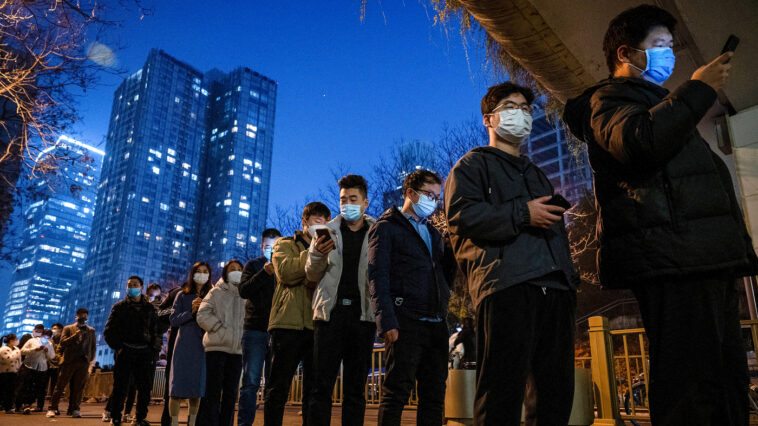
According to a new study published on Wednesday, no new Covid-19 variants emerged in Beijing in the weeks after China ended its zero-Covid policy at the end of last year.
It was feared that the world’s most populous country could become a breeding ground for new, more transmissible, or severe strains of the virus after China’s infection rate skyrocketed after the country began easing its strict pandemic measures in early December.
Beijing was outraged when more than a dozen countries took swift action to restrict travel from China, citing a lack of information about the scope of the outbreak as justification.
Although “there is no evidence that novel variants emerged,” a new study by Chinese researchers analysing 413 samples sequenced in Beijing between November 14 and December 20 found otherwise.
More than 90% of cases were instead BF.7 and BA5.2, Omicron subvariants that were already present in China but have been surpassed by more transmissible subvariants in Western nations.
The study’s results were published in The Lancet journal. It found that 75% of the samples were BF.7 and 15% were BA5.2.
“Our analysis suggests two known Omicron sub-variants — rather than any new variants — have chiefly been responsible for the current surge in Beijing, and likely China as a whole,” said George Gao, a virologist at the Institute of Microbiology at the Chinese Academy of Sciences.
Virologists Wolfgang Preiser and Tongai Maponga from South Africa’s Stellenbosch University who were not involved in the study warned that it only covered a short time frame (a matter of weeks) after China lifted its zero-Covid measures.
They concluded in a comment piece for Lancet that “if new lineages were to emerge in the course of the surge, the study was probably too early to find them.”
They also noted that the results only apply to the capital of Beijing and not the entire country because China has drastically reduced its testing.
Also read:- Microsoft revamps Bing search engine to use artificial intelligence
Nevertheless, the “much-needed data from China” was greeted with open arms by the virologists.
It was stated that “although the fairly mild travel-related measures imposed by some countries for travellers from China once again might be viewed as punitive,” one can only hope that this paper heralds more openness and prompt exchange of data going forward.




